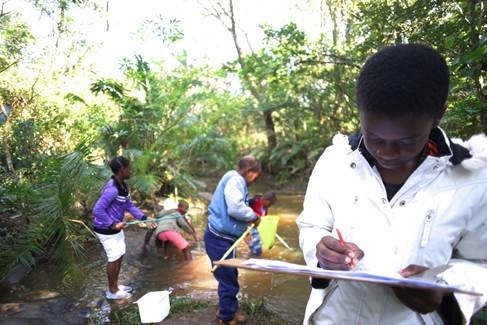Marking National Environmental Month, which takes place from 1-30 June 2016, ExxonMobil Exploration & Production South Africa Limited (ExxonMobil) has partnered with the Wildlife and Environmental Society of South Africa (WESSA) to launch an environmental education programme.
The programme is an initiative which addresses the need to empower underprivileged youth from rural communities with knowledge and experience to care for the earth and to live sustainably.
The implementation of the programme will take place over 12 months, and will provide 440 learners from eight schools with the opportunity to be involved in hands-on learning experiences at the WESSA Twinstreams Environmental Education Centre in Mtunzini, KwaZulu-Natal.
Lack of basic environmental educational knowledge
Peter Claypool, president and country manager of ExxonMobil, says the development of this programme was identified due the lack of basic environmental educational knowledge around the environment and what it can offer communities. Furthermore, he says that many learners miss out on invaluable hands-on environmental learning experiences that are in most cases only accessible to learners from more affluent areas. “Although environmental education is part of the school curriculum in South Africa, many learners are unable to attend and participate in educational environmental excursions due to financial restraints.”
Claypool says that the programme also promotes teamwork and encourages learners to collaborate. “Each group of learners will participate in an experiential course over three days and two nights at the Environmental Education Centre, where they will need to live together, work together and respect each other. Environmental education and human capacity development programmes enable people to change the way they live and treat the environment.”
Human-created crisis
WESSA’s director of Environmental Education, Dr Jim Taylor says, “The environmental crisis that we face is directly the result of how humans live on this planet. A human-created crisis can only be addressed by working with people and educating them about the alternatives towards more sustainable living. WESSA is grateful for any support to help educate young people about environmental issues and risks.”
Claypool says that the project is an important component of ExxonMobil’s continuous contribution to society’s broader sustainability objectives and manages the impact of operations on local economies, communities and the environment. “As a contribution to ongoing efforts to improve understanding of the impact of our business on the environment and to improve methods of environmental protection, we conduct and support research aimed at enhancing our capability to make operations and products compatible with the environment. We continuously communicate with the public on environmental matters and share our experience with others to facilitate improvements in industry performance,” he concludes.




































